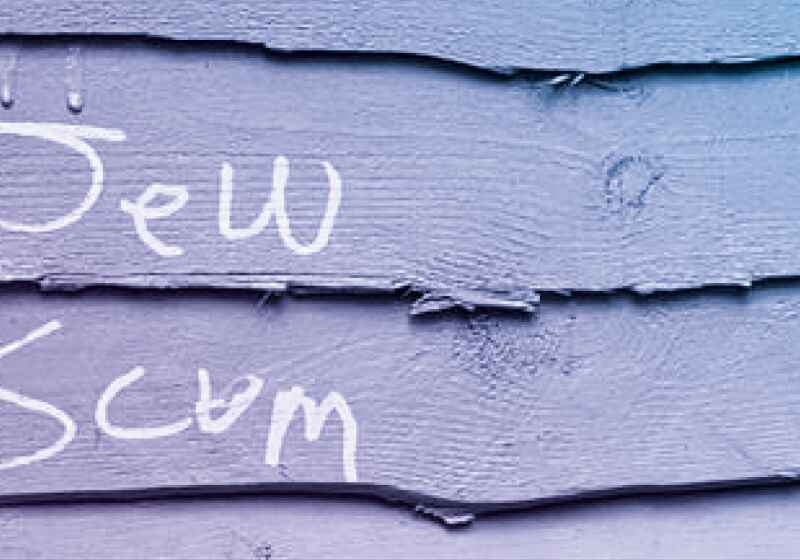CST Blog
BDS and Morality Testing for Jews.
19 August 2015
Leading American-Jewish singer Matisyahu was removed from the line up of an international reggae festival near Valencia in Spain after he refused the organisers’ demands to clarify his attitude to the Israel-Palestine conflict. After widespread criticism, the organisers reversed their decision.
The case may, eventually, have had a relatively positive outcome: but it still reveals the morality testing (and surrounding hype and animosity) that BDS increasingly demands of Jews. We may well ask how many organisers will just seek to avoid to such trouble in future by never inviting Jews, never mind Israelis, to publicly appear at events.
If Matisyahu, real name Mathew Miller, was an anti-Palestinian provocateur, then he would not have been invited to this pro-peace reggae festival in the first place. Indeed, nothing appeared to have been specifically alleged against him and he seems to quite obviously share the same overall pro-peace stance as that proclaimed by the festival organisers. (See his statement here.)
Matisyahu was, therefore, the latest Jewish victim of the morality test that now risks becoming an open and regular feature of the demands for anti-Israel boycott, divestment and sanctions (BDS).
The logic of such morality testing for Jews seems extremely seductive for its proponents. Israel is the world’s sole Jewish state. It is, in the most basic meaning, supported (or at least not opposed) by the majority of Jews around the world. If Israel is the world’s worst state, the nation that above all others must - in the name of morality - be boycotted, destroyed: then surely supporters of the world’s worst state are moral reprobates, themselves deserving of being boycotted out of decent society. Suspects must submit to, and pass, the morality test.
The furious self-righteousness and passion of many BDS activists regularly results in an equally furious demonisation and denunciation of all who do not follow suit. The current Labour leadership fight shows that this political and psychological dynamic is most certainly not confined to the Israel-Palestine conflict: but in the Jewish state setting, it can quickly result in the moral condemnation and isolation of those Jews who refuse to follow BDS orders.
London witnessed something very similar last summer when the Tricycle Theatre stated that it would only host the Jewish Film Festival, if sponsorship from the Israeli Embassy was returned. The Tricycle recanted, but the damage had been done. As Jonathan Freedland noted:
Did this mean that Jewish participation in the cultural life of the country - and, remember, this was a festival of Jewish, not Israeli, cinema - would now be conditional on our first issuing a public disavowal of Israel?
In the specific case of Matisyahu, the reggae festival organisers at first issued a lengthy clarification in clunky English (read it here). It boiled down to their having come under intense pressure from local BDS and then seeking a placatory message from Matisyahu, that on principle he refused to give. The organisers described the demand and the refusal as “two extremisms”, but were far stronger in their condemnation of the behaviour of BDS, whom they described as:
the petition of a fanatic political representative [BDS]…an association which would not listen to reasonable things and which treats everything with ‘either you are with us or against us’.
This is a fair description of how BDS behaves and shows how BDS can impact against everything from a pro-peace reggae festival to Jews. It concludes saying how the festival has lost out, along with:
…the [BDS] association which invented a boycott of an incredible violence. Matisyahu who in a legitimate but inopportune way never decided to open a dialogue...
Except there was a perceived winner and loser in all of this. The winner was the “fanatic political representative”: and the loser was Matisyahu and what this latest morality test represents for Jews everywhere. Hence the editorial of leading Spanish daily El Pais, entitled "Unacceptable discrimination", which ends:
It is absolutely unacceptable that in the Spain of the 21st century, individuals and organizations can still demand that somebody explain themselves in ideological terms in order to be able to exercise their profession, and takes us back to the dark days when everybody was required to prove their religiosity and purity of blood.
Anti-Semitism and discrimination on the grounds of ideology cannot be tolerated and must be stood up to. Criticism of Israel’s policies and defense of the Palestinians cannot be used as cover for systematic persecution of those who hold different views, or because they are Jewish. Spain’s politicians need to speak out about this scandal that questions this country’s commitment to free speech and thought.
Meanwhile, the festival website was still listing Matisyahu as a leading act on the main stage on the last night. It read:
On the same night we will also have the fusion of reggae, rock and hip hop of the Israeli Matisyahu
Even if the listing of Matisyahu as “Israeli” is an administrative error, it remains a wholly fitting analogy for this whole controversy, speaking volumes for how easily Jews and Israelis can be conflated.
At the time of writing it remains to be seen if Matisyahu does now choose to perform and put himself at the centre of a further controversy. Whatever the case, BDS is sending out a message to the world: if you want an easy life, don't invite Israelis...and it follows that it might therefore be easier all round if you don't invite those whom we suspect may well refuse to condemn Israel, as and when we demand it of them.


